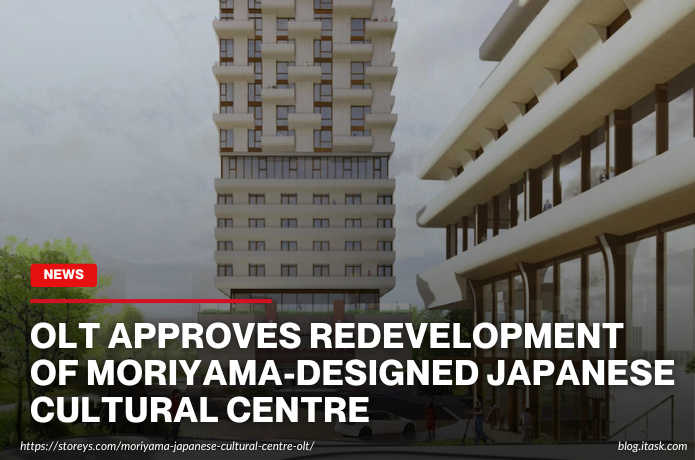OLT Approves Redevelopment Of Moriyama-Designed Japanese Cultural Centre
OLT Approves Redevelopment Of Moriyama-Designed Japanese Cultural Centre

The Ontario Land Tribunal (OLT) has given the green light for a redevelopment project for the Japanese Canadian Cultural Centre (JCCC) in Toronto, originally designed by renowned architect Raymond Moriyama in the 1960s. This historic center has long served as a cultural hub for Toronto's Japanese Canadian community. The approved project includes plans for two high-rise towers of 48 and 55 stories, with a commitment to preserve key elements of the original building's design, both inside and out.
Led by Originate Developments in partnership with other firms, the project has encountered some pushback from preservation advocates. Critics of the redevelopment argue that Moriyama’s design holds significant architectural and cultural value, representing a unique part of Toronto’s heritage. Despite these concerns, the OLT approved the project, emphasizing its potential to contribute to the city’s growing housing needs and align with broader urban development goals. According to the developers, the project will incorporate parts of the building’s original exterior and lobby, striving to honor the center’s historical legacy.
The redeveloped site will feature over 1,100 new residential units, with a mix of one, two, and three-bedroom apartments to accommodate a variety of residents. The design, managed by KIRKOR Architects alongside other contributors, aims to combine heritage preservation with contemporary urban planning principles. This approach reflects a growing trend in Toronto’s development scene, where preserving cultural heritage is balanced with the demand for urban density.
Adam Sheffer, CEO of Originate Developments, highlighted the unique approach the team is taking with this project. He emphasized that the plans prioritize respect for the site’s historical significance, aiming to retain the cultural identity of the JCCC while adapting it for modern uses. This commitment to cultural preservation within a redevelopment project is not commonly seen in Toronto, making it a notable example of heritage-conscious development.
Following the OLT’s decision, Originate and its partners will proceed with finalizing detailed designs for the project. The next phase will involve submitting a more comprehensive site plan application to the City of Toronto. This step is crucial as it allows city planners and stakeholders to further evaluate the balance between heritage preservation and urban development.
Ultimately, the redevelopment of the Japanese Canadian Cultural Centre underscores the complex task of meeting Toronto’s housing demands while respecting its architectural heritage. This project could serve as a model for future developments that seek to harmonize cultural significance with the evolving needs of a growing city.
